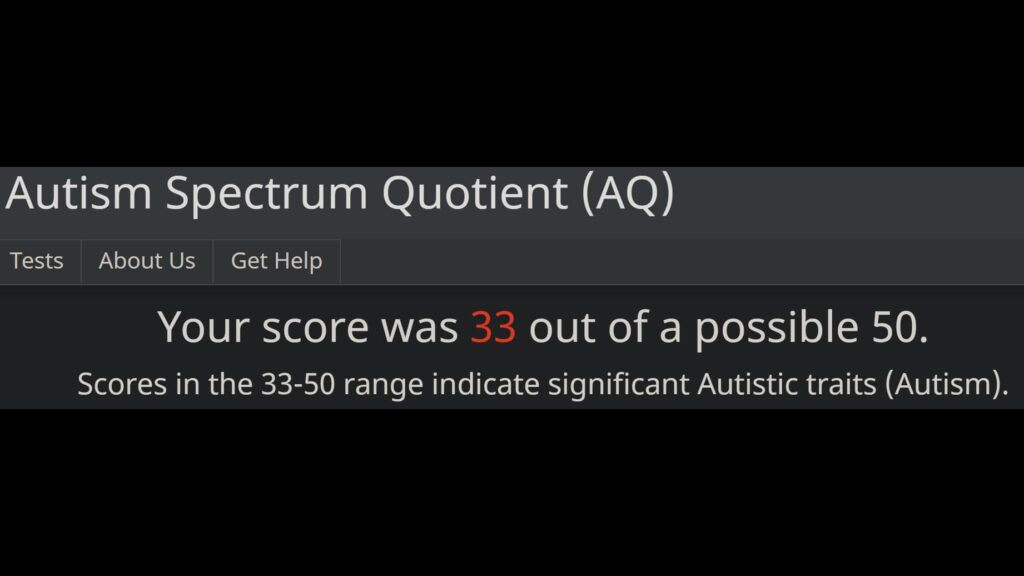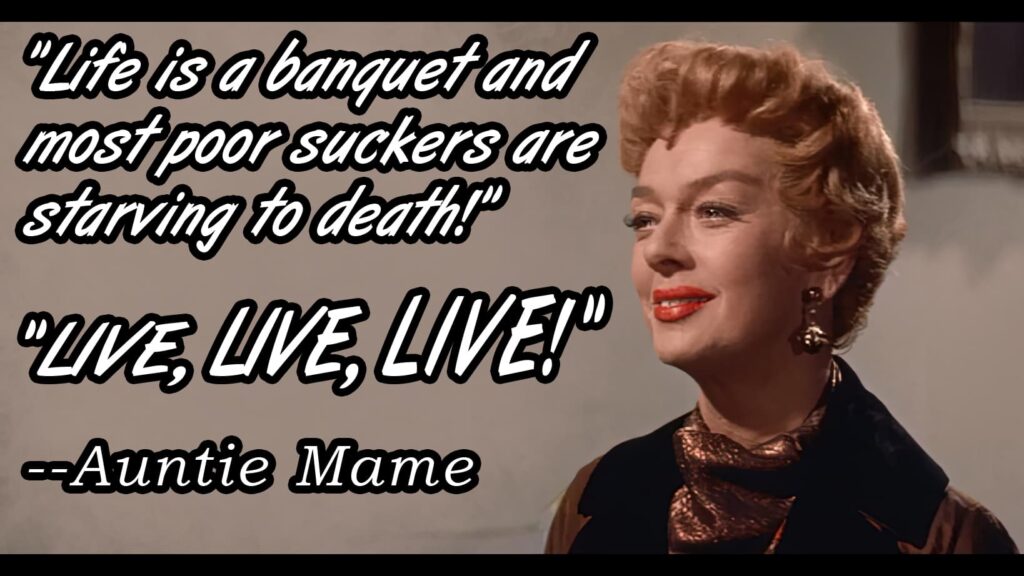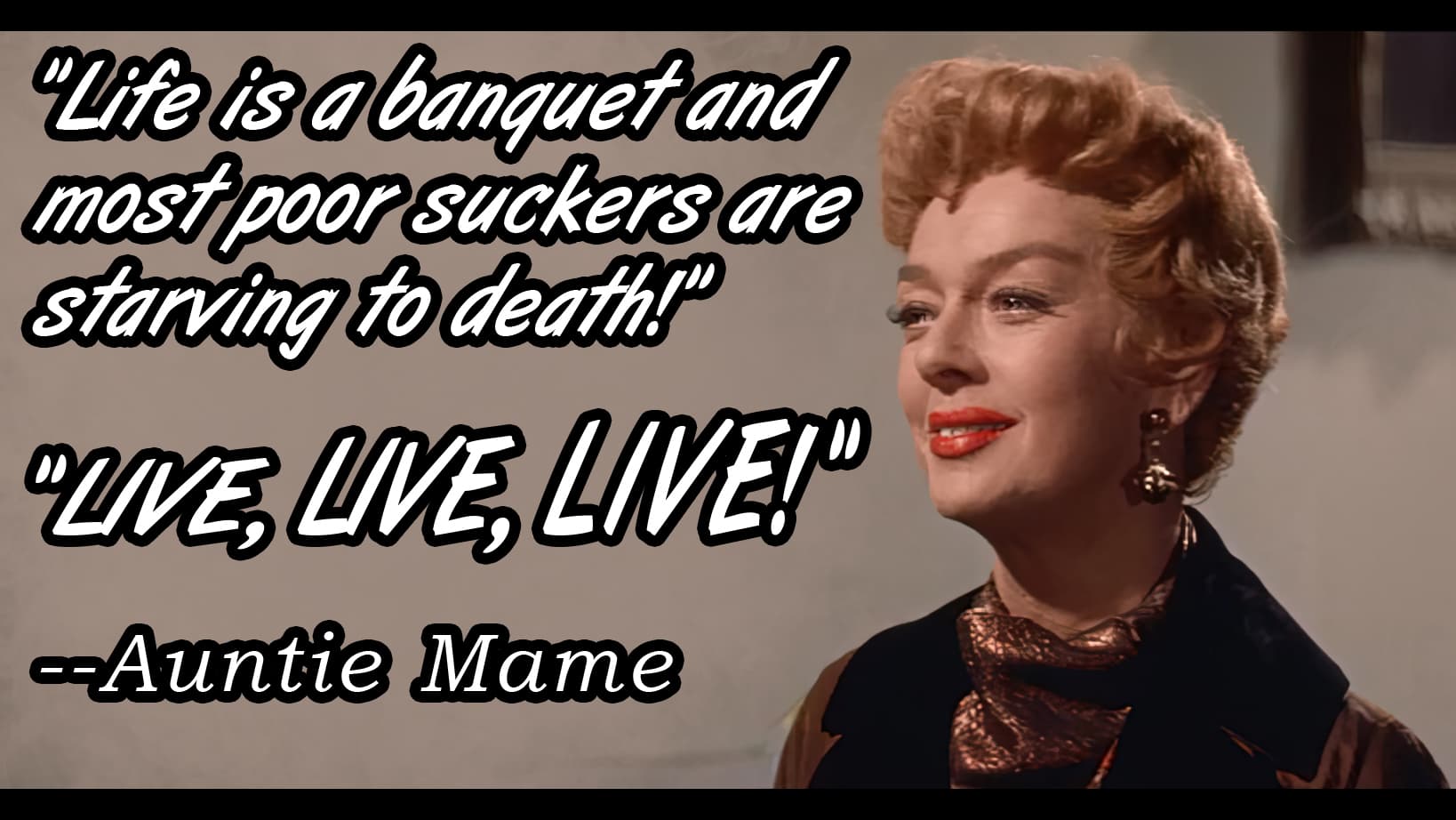Circling Back to Neurodivergence: Masking, Autism, and Queer Identity
I first posted about Neurodivergence two years ago, but I had been thinking about the possibility that fit me for even longer. At some point while I was watching a lot of coming out videos and other videos about queerness, YouTube threw out a video on autism in its suggested videos and I watched it out of curiosity. It felt familiar but I didn’t have the mental bandwidth at the time.
In May and June of 2023, I posted about it. In the end I mostly dismissed the possibility. I never entirely eliminated it but when I scored high on the HSP (Highly Sensitive Person) test I felt like I had found my additional source of otherness. I was still in the process of coming out to friends at the time and had yet to make my “big” coming out post on Facebook.
But it was an idea that never entirely went away. It lingered in the background. I kept feeling like I didn’t have the full picture I continued to read and watch videos. I think I was constantly looking for queer stories more like mine. I think in the big picture that was always part of the problem. Last year I wrote at length about my outsider experience.
It’s hard to even fully explain what I mean sometimes. It wasn’t just that I lacked the confidence to say “I’m gay.” It was deeper than that. I didn’t feel like I fully understood who I was, or how I fit into the world around me. For a great deal of my life, I felt more like an outsider looking in, an observer rather than an active participant in my own story. I felt like I struggled to find a place I fit in, and every failure to feel that sense of connection with individuals or a sense of real community caused me to try a little less.
Excerpt from my Coming Out Late Post – October 2, 2024
Looking Beneath The Surface
Looking back at past posts and essays I’ve written, I realized that it felt like I kept describing the symptoms and was never quite looking beyond the surface level. It was when I read about masking in autism that I had my a-ha moment. I was unaware that people could consciously or unconsciously cover up autistic behaviors. I would read about phenomenon like stimming and think, “well I don’t have that so it’s not me.” And then after hearing others describe their masking on YouTube and in various articles, it deeply resonated.
It’s particularly apparent in my online persona. I don’t relish being the first person to comment on a post. I like to read how others responded first. Unless it’s something that I have a script for. And having social scripts was something that came up when I was in therapy a couple of years ago. I mentioned that a lot of my anxiety was when people went off script or if it was a situation that I lacked a script for. These scripts I think are examples of autistic masking. They were me trying to cope with uncertainty and preserve social energy.
I have a long held order of preference in communication. First level is text based (i.e. email, social media, or texting). In written communication I have more time and less pressure when responding. Next is in person and last is phone. Phone is last because I have no way to gauge a reaction. If someone is in front of me I can read their face for clues. I have almost always rehearsed what I had to say when making a phone call to a stranger. Sometimes I even rehearse before calling friends depending on the reason for the call or how long it’s been since we talked.
The more I looked backwards at my past, the more clarity I felt. There are so many examples that I feel overwhelmed trying to pick out the important ones, but funny enough overwhelm is a major part of the landscape. I have always said that I didn’t like being in large groups like at a party because I couldn’t focus with multiple conversations going on within earshot. Yet concerts, despite being a large crowd, never bothered me. The difference is in a concert I was only paying attention to the loudest “voice” – i.e. the musical instruments and the singer(s).
I’ve always had a strong need for predictability and an aversion to uncertainty. Of course, the world is wildly unpredictable, and I tried to impose my own order on it. This took many forms from planning and careful research to avoiding open-ended decisions. As a child I was very rigid about what I would eat and even as an adult most friends would still say that I’m a picky eater. Simple decisions such as buying a vacuum cleaner could take weeks of research, and bigger decisions are often only made in the wake of burnout. I lived a life with very little experimentation because the choices felt binary and irreversible to me.
Overregulation & Consequences
Big decisions were often simply unthinkable. With a full course load it took me six years to get my degree because I kept switching majors as if there was one right path and I was terrified I’d miss it. Because I was on a scholarship, I had to choose before time ran out, but bigger life choices without external pressure tended to get lost. I remember many late nights agonizing over a major but in the same time period never about coming out.
I can’t point to a single moment or outside force that prompted me to come out. With my all-in or all-out thinking, there was no tiptoeing into a gay club or chat room. Some people, especially when young, try on identities like a new jacket, but when my time came, like a student with a term paper, I felt I needed to learn everything I could.
I took a deep dive into books, blogs, and YouTube videos. Some were scholarly while others were a quest to find voices like mine. I’ve said before that the first friends I told were carefully selected, but I don’t think I’ve ever mentioned it was so methodical that I had a ranked list, with the most supportive at the top. After months of working through the list, I finally had the energy to make my social media debut. It wasn’t a spontaneous announcement. Instead of writing it on Facebook, I carefully drafted my message as a document. Not only did I choose how and what I wanted to say, I picked the date thoughtfully. I held off until Saturday because I thought it would be more visible and because I noticed it was 9/9 which would be an easy to remember anniversary.
My coming out story is one example from a lifetime of trying to manage uncertainty. Much of it was unconscious masking to blend in. It was never just about being queer. There were always multiple fronts I was trying to manage. It’s hard to pick what examples best paint the picture. For me, coping with anxiety included things like rehearsing a phone call. Always pre-booking accommodations was another coping strategy, because the thought of ending up without a place to stay, whether for a night or a month, was paralyzing. Or ruminating over a lifetime of social missteps that replay like a personal cautionary tale, possibly even a form of stimming, I’ve come to realize.
Learning about the neurodivergent experience has led me to look back at a lifetime of patterns in my own life through a new lens. I recently recalled a foundational story my parents used to tell about when I was learning to talk. If they didn’t understand me and asked me to repeat myself I would meltdown fast. It was apparently so dramatic they stopped asking and started trying to respond as if they knew what I said. With little effort, I can identify meltdowns in adulthood when I felt misunderstood or unable to get my point across. Later in life, I had the self awareness to recognize a meltdown and sometimes mended fences, but I didn’t see the bigger picture until now.
Tales From An Unreliable Narrator
I’ve given examples before illustrating that I find I’m an unreliable narrator of my own story. When I first started working with a therapist two years ago and he asked if I had ever been bullied, I said no. Then some weeks later I remembered an ordeal with a 7th grade bully. And before that there was the sudden reconnection with how Matthew Shepard’s murder affected me in 1998. I can remember some things in crazy detail while friends have mentioned moments we shared years ago that are just not there. The latter makes me feel a pang of guilt because anyone who has remained in my life that long means something to me.
I’ve attempted, perhaps incorrectly, to place the question of my memory into an autism framework, and it’s possible there’s some explanation. There’s some research that suggests people with autism in some circumstances have difficulty storing or accessing memories. There are other possibilities I’ve ruminated on in the past and I’m really uncertain where this fits into the bigger picture. I may be experiencing something we all do and I’m just looking at it harder than others do. I’m honestly unsure but thought it was worth mentioning.
The Cost of Passing
The origin stories I held about myself clashed with, and made it difficult to accept, the possibility I was actually autistic. “The smart kid: was my self image throughout my school years. I always performed the part well, whether it was being in the top reading groups excelling on tests, or meeting any metric that mattered in schools of the day. I was in my school’s gifted program, which reinforced the idea I was exceptional. Since eligibility depended on test scores, it was ultimately a measure that aligned with how my brain operates. When high school graduation rolled around, I wrapped up only a tenth of a point behind the valedictorian. On paper, I may have seemed to flourish because school offered the kind of structure and routine that suited how my brain worked.
The schools of my Gen-X youth were not equipped to recognize autism. As long as you weren’t failing or disrupting class, chances are you would pass through the system unnoticed. In my case, both school and my first long-term career in data processing both played to the detail-oriented pattern-seeking side of my brain. Outwardly I excelled in school and built a solid reputation in my career. Inwardly I felt rudderless in every aspect of life with little recognition of the cause. I never considered that my strengths in one part of my life could be closely tied to high masking autism.
I think this “role self” I developed as the trouble-free “smart kid” may have been an intersectional one. In my generation, but maybe not for younger ones, there’s an often-observed tendency for little gay boys to be “the best little boy in the world.” It’s the kids that make all A’s and are a delight to their teachers. Many psychologists who have written about this suggest it’s not an innate trait, but a survival tactic. One can see how it could also function as a form of masking that helped me conceal both queerness and autism in school and well beyond. I held onto that mask tightly, at the cost of being authentic with others and with myself.
Concluding Thoughts
Coming out of the closet two years ago came with a wide array of emotions, sometimes laced with feelings of regret. Not regret for coming out but regret for not having done so sooner. II believe this is an incredily human experince. I’ve encountered many who came out “late” who said the exact same thing. I’ve also experienced moments of imposter syndrome. Have I “earned the right” to feel this way about XYZ issue when I’m so new to the club?
And now as I perch on the cliff’s edge, feeling as if much of my life may be explained by having an autistic brain, I feel a similar sense of imposter syndrome. There’s no way I could get a formal diagnosis right now, but I did take a few of the widely used self-assessments and scored high, which added weight to what I was already feeling. For the first time I feel some sense of understanding why I am the way I am. I’ve read and listened to so much on the subject recently that I can’t remember where I encountered some ideas. One that stayed with me is the observation that, generally speaking, neurotypical people don’t spend years wondering if they are neurodivergent. If I’m not neurodivergent, I feel like I am at least from a neighboring country.

The twin experiences of accepting my queerness and neurodivergence in the span of two years in my early 50’s is… a lot. This latest revelation has brought waves of emotions that include joy, relief, and yes, additional regret. I recently mentioned to a friend that I see people my age who have partners they’ve been with for decades. And there’s a wistful part of me that wonders, what if I missed the chance of finding that? I’m attempting to reframe that thought by recognizing that I was concentrating on one group’s experience. On reflection I recognize that I have also encountered single men my age and older who have been out for most of their lives. Some are delighted with their single lives while others are still hoping to find their Mister Right.
Ultimately, the reframing involves recognizing that life is unpredictable. My brain finds comfort in predictability, but real life is far messier. Whether you came out at 14 or 94, you had a lifetime of experiences. It was a life that likely had its share of happiness and sorrow, highs and lows, ebbs and flows… the list goes on. Life is the ultimate find-your-fate book. Whatever choices you made led you to the current version of yourself and the task is embracing all the rich possibilities of living in the now.

Themes
Explore more content with topics similar to the one you just read.


Thanks for reading!
If you’ve found my content helpful, insightful, or simply enjoyable, please consider supporting me with a Ko-Fi donation. Your generosity helps me continue creating valuable content. Thank you for your support!